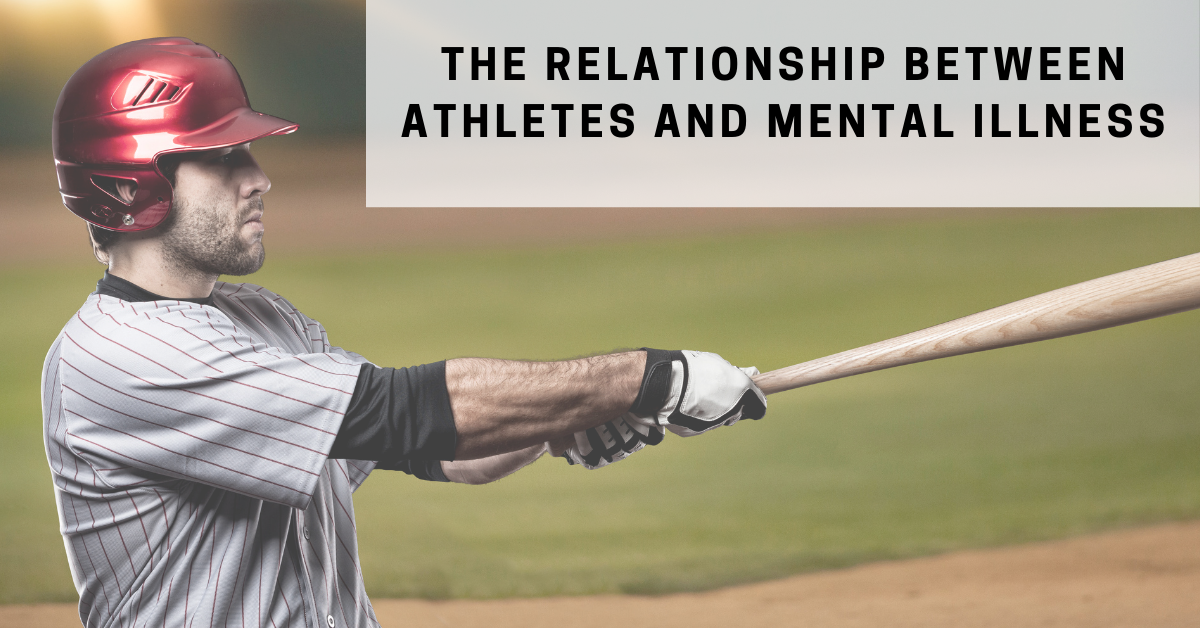
Athletes are often perceived as people with higher self-esteem who are immune from mental health issues due to their accomplishments and status. Often, people tend to view their sports heroes, role models, or idols as superhuman. The truth is that athletes are as human as anyone else and are just as susceptible to mental illness. Depression in athletes is so prevalent that research studies have been conducted to determine just how many athletes suffer from mental health conditions and substance and alcohol abuse. In 2016, ‘Psychology Today’ published a study that found 6.3% of collegiate athletes met the threshold for clinical depression[1]. On the professional end of sports, a study from the ‘British Journal of Sports Medicine’ found that 19% of elite athletes had alcohol abuse problems and 34% of current elite athletes suffer from anxiety and depression[2]. So why are athletes so susceptible to mental illness?
Stress and Failure
Life, preparation, and expectations can put a significant strain on any person within the boundaries of a job, a school, or even parenthood. The same concept can be applied to athletes. Often, when an athlete sets their goals to accomplish great and spectacular feats it comes with a great deal of stress to perform at the highest possible level. Aside from the personal expectations, these expectations can also be set by coaches, parents, family, friends, teammates, and fans. Olympic gold medalist and icon Michael Phelps has admitted to alcoholism, loss of identity, and suicidal ideation all due to the pressures of being one of the most regarded elite athletes. In his HBO Sports documentary, “The Weight of Gold” Phelps speaks in depth about his battles with these mental health issues. In the documentary, he vocalizes his perception of himself and the struggle of self-identity between human and athlete, “Yeah I won a ton of medals. I had a great career,” he said. “So what? I thought of myself as just a swimmer. Not a human being.[3]”
The impact of Major League Baseball and Minor League Baseball players’ mental health can also be significantly impacted based on variety of reasons. For instance, a class action lawsuit was filed by minor league players because the amount of time spent practicing and playing to hone their craft was worth less than minimum wage. Can you believe that? $570,000 is the minimum salary of Major League Baseball players. The difference between less than minimum wage and $570,000 minimum salary is the difference of 1 level, a call-up to the majors, or a call-down and career in the minors. Money aside, these ballplayers have given their bodies, time, effort, dedication, and sacrifices to the game they’ve mastered. They’ve been traded and uprooted from time to time based on the needs of the ballclubs. So what happens when the athletes mind no-longer can handle the stress of what-ifs and uncertainty? In a May 2021 Sports Illustrated article, Ryan Buchter a major league journeyman told his side of the mental health issues surrounding professional baseball, “Failure surrounds us. It engulfs us. We’re reminded of it by fans, scoreboards, websites, coaches, talent evaluators and seemingly everyone else. Even when we’re really good. We’re failing more than succeeding.” Buchter goes on, “I spent years beating myself up. I’ve spent years drowning myself in booze and running from failure.”[4]
Mental health issues can affect anyone. If you or someone you know is suffering from a diagnosis of depression or other mental health issues, consider a clinical study with Pharmasite Research in Pikesville, MD.
[1] https://www.psychologytoday.com/us/blog/the-truth-about-exercise-addiction/201601/college-athletes-may-be-more-depressed-you-think
[2] https://bjsm.bmj.com/content/53/11/700
[3] https://www.insider.com/michael-phelps-mental-health-scarier-than-ever-during-pandemic-2021-1#:~:text=Phelps%20has%20struggled%20with%20depression%2C%20suicidal%20thoughts&text=In%202014%2C%20his%20second%20DUI,checked%20into%20a%20treatment%20center.
[4] https://www.si.com/mlb/2021/05/10/relief-pitching-baseball-mental-health-daily-cover






